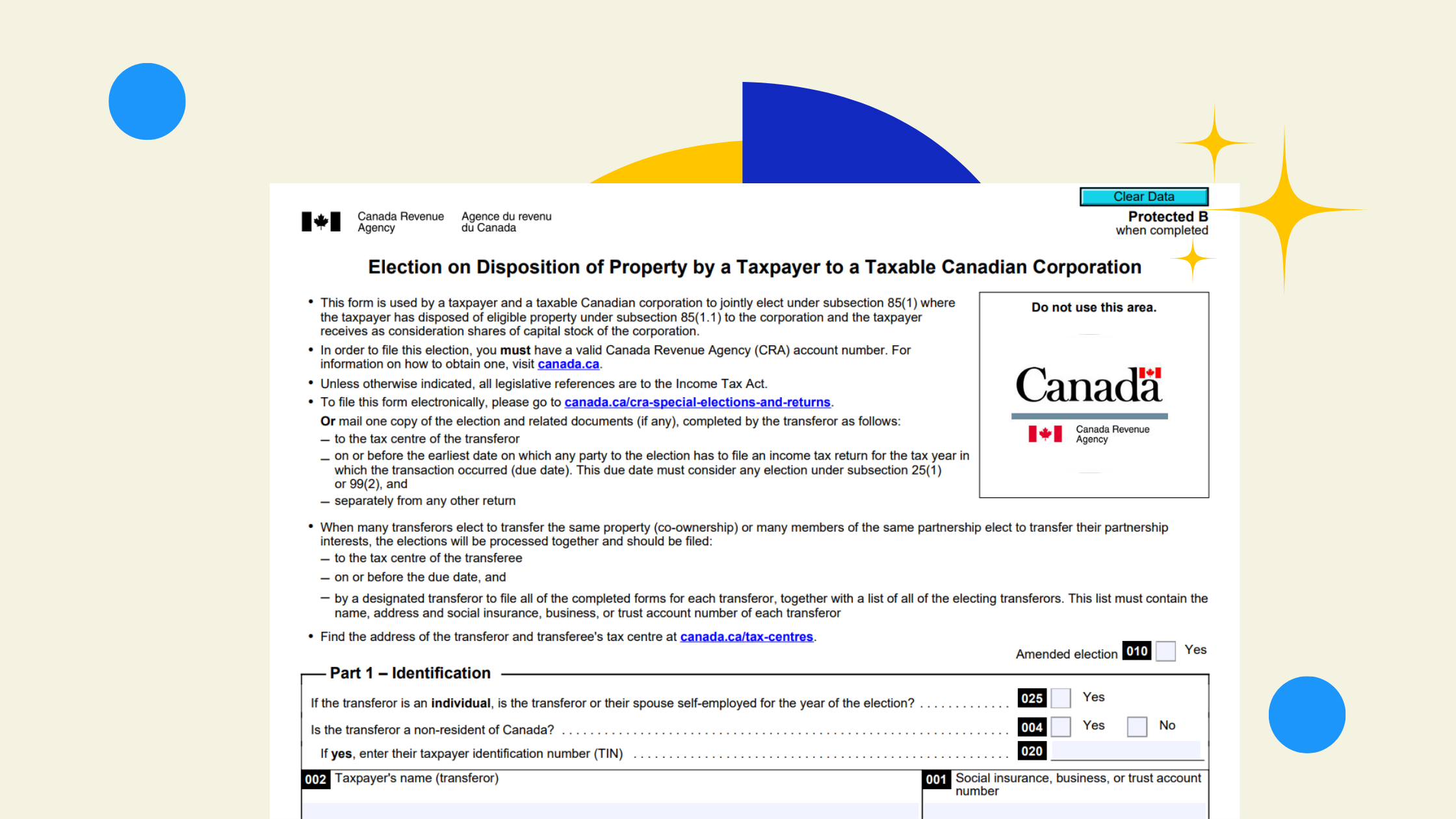Running a business is challenging enough without the added stress of tax season. If you're feeling overwhelmed by the prospect of filing your corporate taxes, you're not alone. Many business owners find themselves scrambling to gather the necessary information each year.
To help you get organized and feel more in control, we've compiled a comprehensive list of the essential documents and information you'll need to file your Canadian corporate taxes. Let's break it down:
The Must-Haves: Your Essential Tax Filing Checklist
- T2 Corporation Income Tax Return: This is the main form all corporations must file. It's a 9-page document that covers your income, deductions, and credits.
- Financial Statements: You'll need three key documents:
- Income statement
- Balance sheet
- Retained earnings statement
- General Index of Financial Information (GIFI): This form is where you report all your financial statement information.
- Business Name and Address: Ensure this information is up-to-date and matches your official records.
- Industry Code: This tells the CRA what type of business you're operating.
- Fiscal Period Details: The start and end dates of your business's financial year.
- Copy of Incorporation Papers: Keep your official corporate documents handy.
- Payroll Information: If you have employees, you'll need records of their compensation.
- GST/HST Return Information: This shows the sales tax you collected and paid.
- Accounts Receivable and Payable: Lists of who owes you money and who you owe money to.
- Fixed Asset Continuity Schedule: A record of your business's major assets and how their value has changed over time.
- Receipts for Expenses and Purchases: Keep everything, no matter how small.
- Invoices Received: Any bills your business got during the year.
- Asset Additions or Disposals: Records of any major items you bought or sold for your business.
- Previous Year's Tax Returns: This helps you and the CRA see how your business has changed over time.
- Latest Notice of Assessment from CRA: This is the government's response to your last tax filing.
- Record of Tax Installments Paid: If you paid any taxes in advance, you'll need to show that.
- Business-Use-of-Home Details: If you work from home, you might be able to deduct some costs.
- Mileage Log: If you use your personal vehicle for business, keep track of those trips.
- Information on Partners or Co-owners: If you're not the sole owner, you'll need to provide details about your business partners.
What You Might Need: Additional Documents for Specific Situations
Depending on your business structure and activities, you might also need some of the following:
- T2 Short Return: If your corporation is eligible, you might be able to use this simplified 2-page version instead of the full T2.
- Form T183CORP: You'll need this if someone other than a company representative is filing your taxes electronically.
- Schedule 24: For first-time filers after incorporation.
- Schedule 100: More detailed balance sheet information.
- Schedule 125: A summary of your income statement.
- Schedule 3: For reporting dividends and calculating certain taxes.
- Schedule 50: Information about your shareholders.
- Schedule 8: For calculating depreciation on your assets.
- Schedule 1: Adjusts your income for tax purposes.
- Schedule 11: Reports transactions with shareholders, officers, or employees.
- Schedule 200: Additional details for the T2 Corporation Income Tax Return.
- Schedule 88: If your business has any online activities.
Key Things to Remember
- Keep Records for 6 Years: The CRA might want to verify your information, so hang onto everything.
- Electronic Filing: If your business has over $1 million in annual gross revenue, you're required to file electronically.
- Start Early: Don't wait until the last minute. Gather information throughout the year to make tax time less stressful.
- Stay Organized: Use a filing system that works for you, whether physical or digital.
- Double-Check Everything: Ensure all numbers add up and all forms are complete before filing.
- Consider Professional Help: If you're feeling overwhelmed, it's okay to consult an accountant or tax professional.
Why This Matters
Accurate and timely tax filing is crucial for several reasons:
- It keeps you compliant with Canadian tax laws.
- It provides valuable insights into your business's financial health.
- Proper filing ensures you're not paying more taxes than necessary.
- Understanding your tax situation helps in planning for future growth.
Remember, every successful business owner has had to learn this process. While it may seem daunting at first, with each year, you'll become more efficient and confident in handling your corporate taxes.
By staying organized and prepared with this checklist, you're taking an important step towards managing your business finances effectively. Take it one step at a time, and before you know it, you'll have your corporate taxes filed with confidence.



.png)

